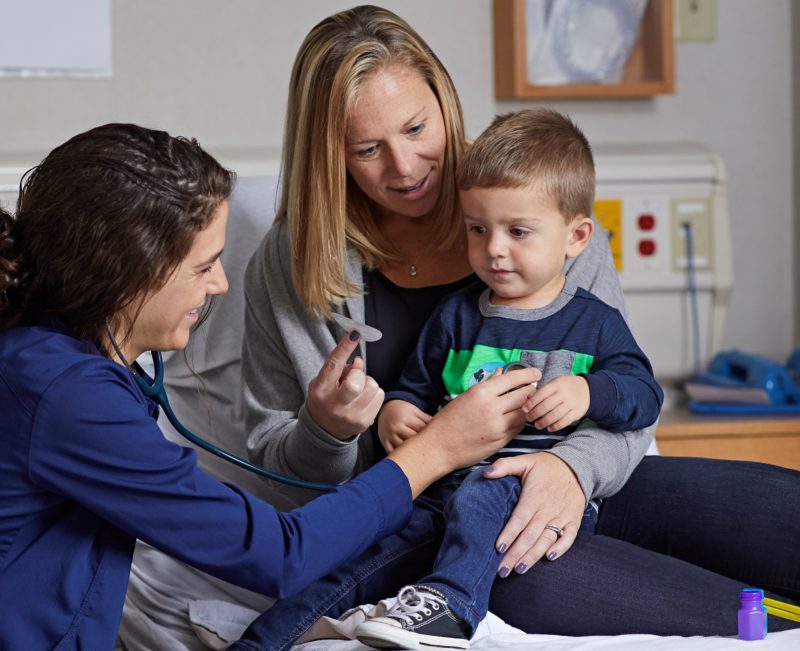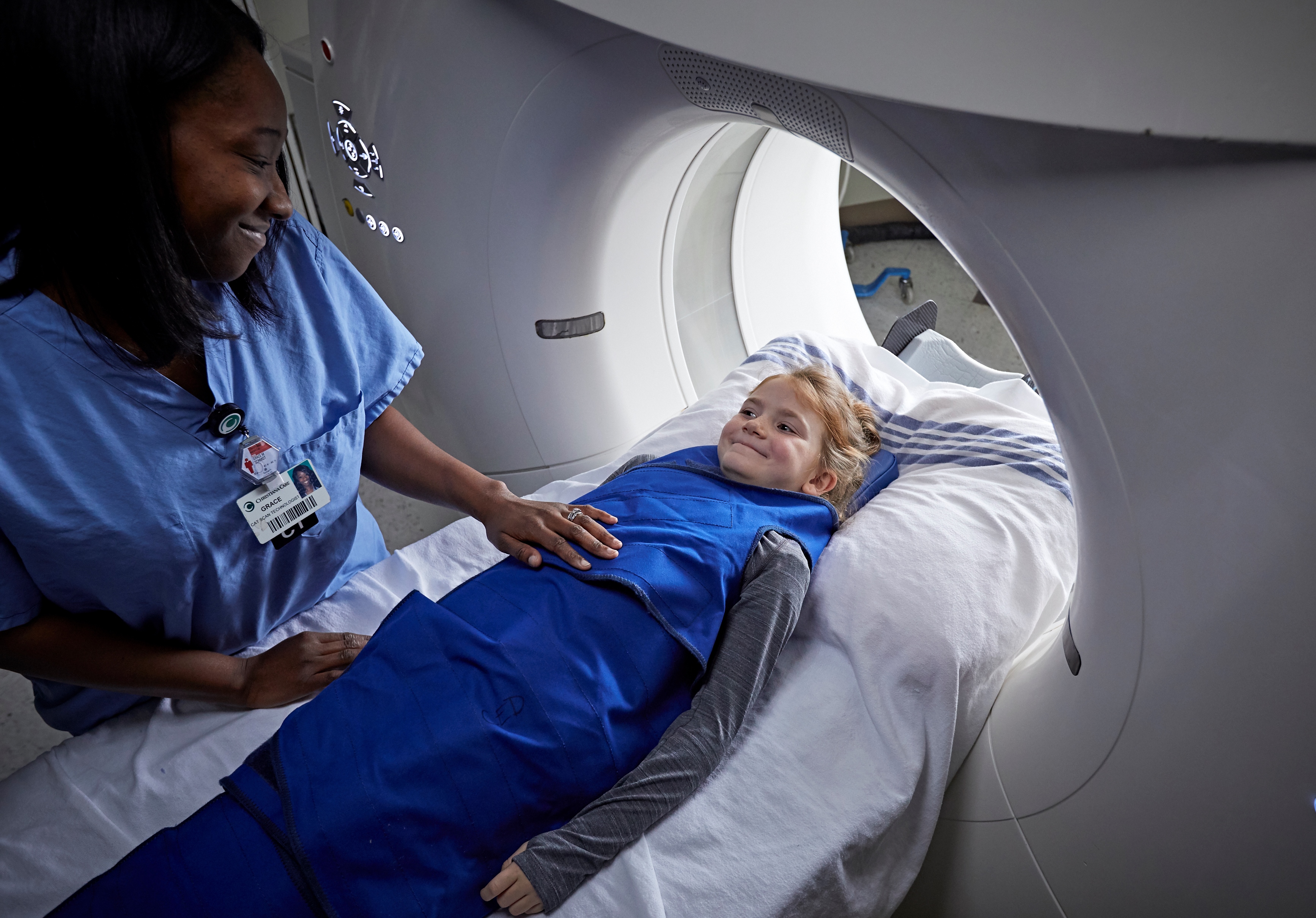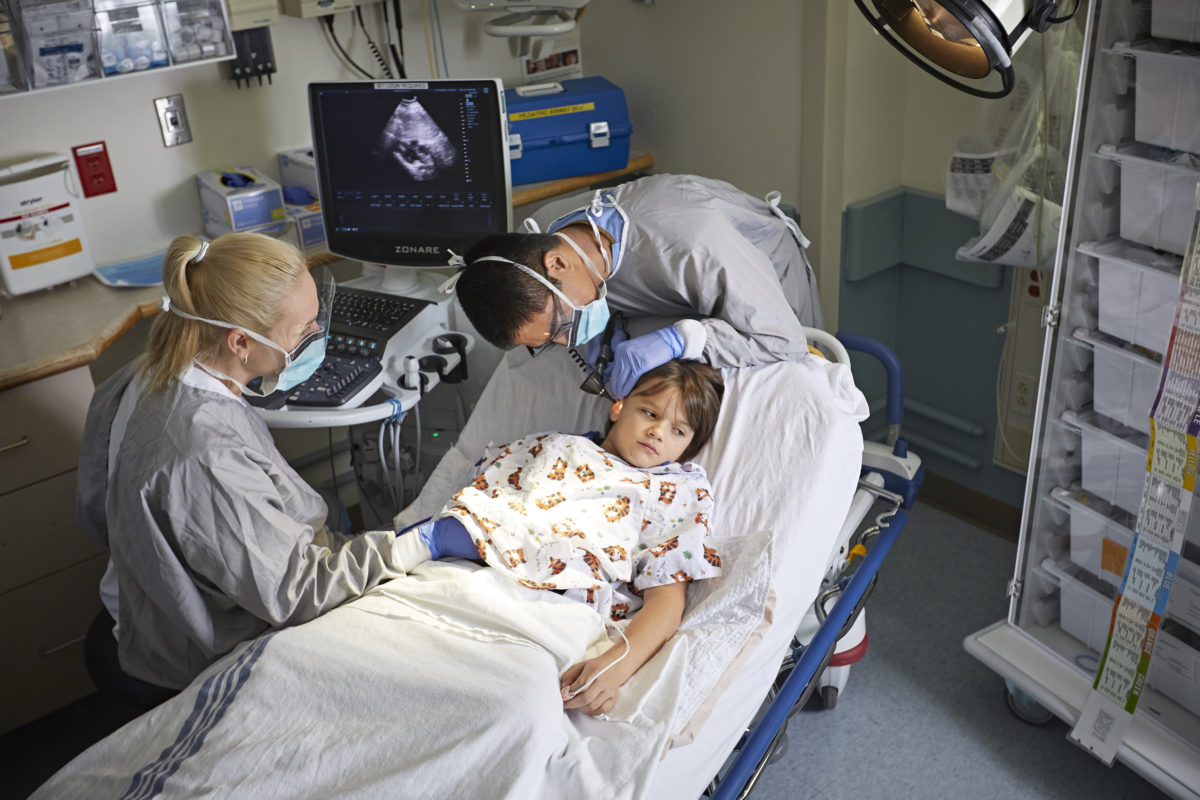Christiana Hospital’s recent redesignation as Delaware’s only Level 2 Pediatric Emergency Care Facility is a reflection of its commitment to offering round-the-clock care to children from specially trained staff and pediatric-specific emergency care resources.
As one of only two hospitals in the state with inpatient facilities for children, Christiana Hospital mobilizes resources inside and outside the emergency department and cultivates readiness through training and providing specialized equipment made for children.
Christiana Care Health System occupies a critical niche in the state’s pediatric emergency services infrastructure.
Though the nation’s children’s hospitals specialize in treating complex cases, every hospital must be ready to take care of a child that arrives at its emergency department.
To that end, Christiana Care’s hospitals — Wilmington Hospital and Christiana Hospital — are part of a nationwide effort called the Emergency Medical Services for Children program. This program collaborates with other hospitals and emergency medical services within Delaware, said Brian Wharton, MSN, RN, CPEN, emergency pediatric coordinator and chair of the Pediatric Resource Team at Christiana Hospital.
Christiana Care’s Emergency Department received outstanding readiness survey test scores — 99 out of a possible 100 — based on a Pediatric Readiness Quality Improvement Emergency Department Assessment conducted in August 2016 by the National Pediatric Readiness Project.
The scores jumped to 99 from a previous score of 86 in May 2013. Perfect scores were received in all but one of the sections of the assessment, which included: Guidelines for Administration and Coordination; Physicians, Nurses, and Other Health Care Providers Who Staff the ED; Guidelines QI/PI in the ED; Guidelines for Improving Pediatric Patient Safety in the ED; Guidelines for Policies, Procedures, and Protocols for the ED; and Guidelines for Equipment, Supplies, and Medications for the Care of Pediatric Patients in the ED. In the latter section, Christiana Care received 32.4 out of a possible 33 points.
Each family’s story of a pediatric medical emergency is different, but they all begin with some level of worry, fear or anxiety. It’s critical that families have confidence in the expertise at their local hospital to take good care of their child.
When a child faces danger
Excellence in caring for young patients begins before they enter the hospital. Christiana Hospital’s quarterly meetings with emergency medical services personnel helps ensure they’ll be taken to the right place.

Once a child enters any Christiana Care emergency room, they are likely to be met by staff who are part of the Pediatric Resource Team. Members of this team receive specialized training in pediatric emergency care.
Given that assessing a child’s actual pain level is quite difficult, pediatric nurses are trained to use various pain scales to meet the needs of the child. To assess their pain, children are typically asked to point at one of several faces that range from happy to crying.
Because medication dosage for kids varies based on their weight, children are typically weighed soon after they arrive.
Children treated at either Wilmington Hospital or the Middletown Emergency Department are stabilized at those locations, meaning their immediate health concerns are met, and if needed they can be transferred to a higher level facility, such as Christiana Hospital.
“For kids who need ongoing care at another facility, our goal is to [ensure that] they’re stable enough to be safely transported before they leave our hospital,” said Christina Hoddinott, BSN, RN, CEN, CPEN, an Emergency Department nurse who served as pediatric nurse coordinator at the hospital.
Being ready also means being able to handle critical but rare events, such as when a mother who has gone into labor at one of Christiana Care’s three emergency departments.
A major part of caring for kids is maintaining communication with parents by explaining their child’s condition, what the plan of care will be and how their child will feel, says Stefanie Golebiewski, M.D., pediatric physician coordinator for all three emergency departments.
Involving parents by asking them to hold their child’s hands or give their child medication can help them feel empowered. On the other hand, when a child needs to be restrained, parents are often offered the chance to leave the room so their child doesn’t associate them with their discomfort.
Having the right training, experience and equipment also prepares staff to be ready for patients who test their abilities but also offer some of the most gratifying experiences in health care.
Pediatric care brings unique challenges, rewards
The Pediatric Resource Team helps members of the health care team to gain knowledge and care for children with confidence, Dr. Golebiewski said. Its members train on how to administer tests and imaging studies, talk to frightened children and work with parents.
Because children have trouble communicating about their health and understanding what’s happening around them, they can become scared and confused during treatment.
“They can be the most stressful patients, but when you are able to help them feel better and help their parents through a highly stressful situation, they can be some of the most rewarding,” Dr. Golebiewski said.
In many ways, from the physical to the emotional, caring for children is far different than caring for adults.
Taking time to comfort and calm children, such as by blowing bubbles or playing with toys, Wharton said, is critical even in a fast-paced environment like an emergency department because it builds a rapport with the pediatric patient and can set the tone for future visits.
Children have different medical needs than adults, including weight-based doses and specialized equipment.
“We tell our nurses that children, no matter their age, are not little adults,” said Heather Panichelli, AGCNS-BC, MSN, CEN, CPEN, a clinical nurse specialist at Christiana Hospital.
Christiana Care’s continuous improvement efforts, guided in part by its state pediatric readiness score, are closely tied to its collaboration with state regulators.

Part of state, nationwide efforts
Delaware’s effort to create a three-tier pediatric emergency care system took effect in 2012. It followed years of nationwide discussion on how well hospitals are prepared to treat children, said Linda Laskowski Jones, MS, APRN, ACNS-BC, CEN, FAWM, FAAN, vice president of Emergency and Trauma services at Christiana Care. Too many hospitals did not have the right equipment or training regimens for hospital personnel, which led to a lack of confidence on the part of their staff.
Delaware joined the national Emergency Medical Services for Children program, which works with the American College of Surgeons to voluntarily evaluate whether hospitals have the training, skills and resources to provide high-level care to children. The result was full participation by the state’s hospitals, each of which took a place among the following levels:
- Level 1: Dedicated children’s hospitals, which act as a regional referral hub and provide the most comprehensive and specialized care to children.
- Level 2: Capable of stabilizing critically ill or injured pediatric patients and providing ongoing inpatient care or transfer.
- Level 3: Capable of stabilizing critically ill or injured pediatric patients and some capability to manage minor inpatient problems.
Not just the emergency department
Caring for children extends far beyond the emergency department, Jones said. Radiology, Anesthesiology, Purchasing — these departments and many others must work together to understand the needs and provide support for pediatric care.
“These are not isolated efforts at our institution, we all support and learn from each other,” Jones says. This systemwide collaboration creates an environment of creativity and innovation that extends beyond emergency services. For example, at Christiana Care’s Roxana Cannon Arsht Surgicenter, children who are undergoing a dental procedure can drive themselves to the operating room in a miniature battery-powered vehicle. The light-hearted diversion helps reduce anxiety for kids — and their parents — while helping to reduce the need for preoperative sedation.
Christiana Care also has also brought its expertise in pediatric care to the community. One of the most dynamic examples is You Only Live Once, a reenactment of a trauma resuscitation that gives young people a frank look at the consequences of violence.
Inside its emergency departments and across the community, Christiana Care’s doctors, nurses and other care providers have earned the confidence that comes from training, equipment and experience. During an emergency, parents and children can benefit from that confidence when it matters most.



